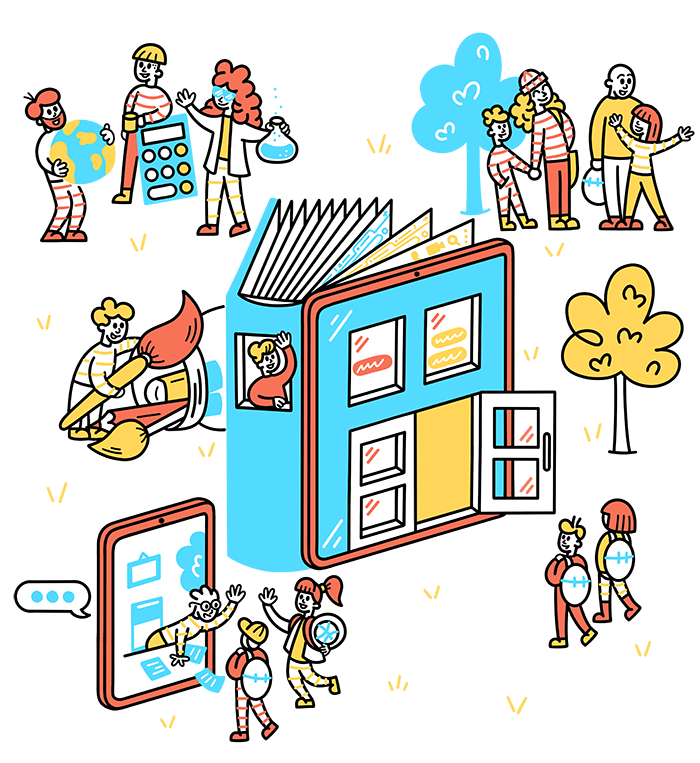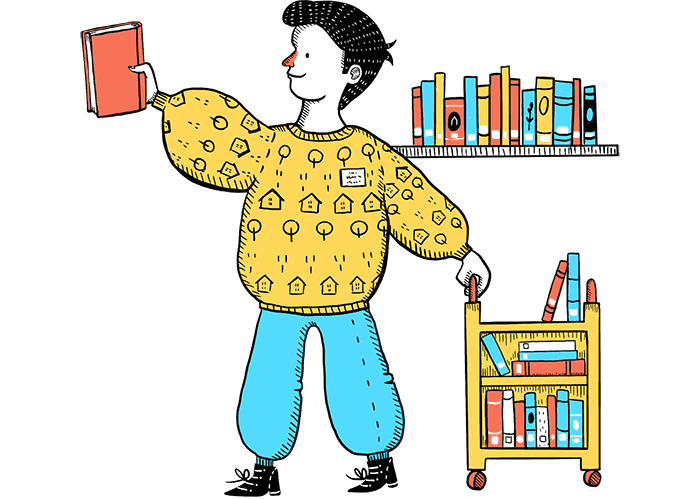English translation
Hi! The English site is only a beta for now and still has many errors (especially in names and locations).
We are working hard to fix them and making more content available than ever before so expect constant updates.

Til að tryggja öryggi barna og unglinga þarf að vanda val á stafrænni tækni sem nýta á í skólastarfi.
Reykjavíkurborg hefur sett sér persónuverndarstefnu byggða á persónuverndarlögum. Skólastjóri ber ábyrgð á notkun stafrænnar tækni í skólastarfi ásamt því að sinna upplýsingaskyldu gagnvart foreldrum.
Góð stafræn borgaravitund felst meðal annars í því að koma vel fram hvert við annað í netheimum sem og í raunheimum.
Reykjavik City primary schools have decided to work with certain personal data of students using the Google Workspace for Education Plus learning environment as part of their schools' teaching practices.
When using Chromebook, hereafter device, students' personal information is processed.

The City of Reykjavik and the primary schools safeguard personal data through appropriate organizational and technical measures, including access controls.
The above processing of personal data has undergone a risk assessment and a Privacy Impact Assessment (PIA).
The City of Reykjavik stresses the importance of ensuring that all processing of personal data within the municipality is carried out in accordance with the provisions of the privacy legislation, as well as the policies of the City’s departments and central administration. The Policy applies to any processing of personal data on behalf of Reykjavik City, including the activities of the City’s councils and committees, as well as activities where a third party has been entrusted with performing tasks on behalf of Reykjavik City.
The adoption of digital technologies in school and recreational settings requires a risk assessment. Due care must be given to the selection and use of software for schooling in order to ensure the safety of students.
The City of Reykjavik follows a specific procedure and software is evaluated, among other things, on:
Managers at each location are responsible for informing parents about what digital technology is used and how.
Personal data that is processed:
Access information from the devices comes from the student account for Gschool created by the primary school based on the basic information on the student at the school. A student may enter personal information on the device, but teachers will implore students not to enter personal information on the device in accordance with the device terms of use and education to parents and students.
Basic parental information is obtained from Mentor/Namfus to ensure parental confirmation of the terms of use on the devices.
It should be pointed out that according to Act No. 77/2014 on the Public Archives, part of the documentation shall be deposited at the Reykjavik Municipal Archives as the City is an entity subject to an obligation of transfer.
Other than that, the information will be stored in Google Workspace for Education during a student's studies, and it will be deleted three months after the student has finished their studies at the school and has returned the device to the school.
The student shall comply with the rules of the school and the City of Reykjavik as well as the national legislation on taking and publishing photographs. The taking and publishing of photographs in the City’s school and recreational activities are subject to specific guidelines.
It is important that students themselves are not the main subject of the photos and image editing is only allowed as part of project work.
Parents/guardians agree to the terms and conditions for lending students Chromebooks and accessories on My Pages.
Have your electronic ID available.
Students are also considered to have accepted the terms and conditions when they login to the Chromebook for the first time. This approval is a prerequisite for a student to be allowed to take the device home.
The terms and conditions contain these important points:
When using chromebooks, hereinafter referred to as devices, students' personal data is processed. The information is necessary so that a user account can be created for students to access the device and the software that comes with it. Then the device itself is marked with a student's first name. The child's primary school is considered to be the guarantor of the processing that the use of the chrome books entails under the provisions of the Personal Data Protection Act No. 90/2018.
The Department of Education and Recreation has assisted the city's primary schools in setting up the chromebooks and guided them in making organizational security arrangements so that the security of personal information is adequate. A privacy risk assessment and impact assessment has been carried out for this personal data processing activity.
Personal data that is processed:
The purpose of the project is to ensure that students have equal opportunities to study and have the opportunity to choose subjects and approaches in their own studies. Students have a solution that meets their needs and have access to a device that facilitates communication with teachers and fellow students if access to school is restricted or school is closed. As well as enabling students to participate in school despite illness. It is also important that the City of Reykjavik is able to fulfill its statutory obligations to the registered student on the right to schooling.
The purpose of using the tool is to follow up the focus of the Primary Education Act and the Primary Education Curriculum on providing multiple pathways for knowledge acquisition through the use of technology media, information technology, and collective and documentary work. Elementary Law and Primary Curriculum pay particular attention to the intake and organization of learning in specific disciplines and explicitly specify informational and technical education there. It is also stated that students should be given equal opportunities to study and have the opportunity to choose subjects and approaches in their own studies. Students have a solution that meets their needs and have a solution that facilitates communication with teachers and fellow students if access to school is restricted or school is closed. At the same time, to enable students to participate in school despite illness. It is also important that the City of Reykjavik is able to fulfill its statutory obligations to the registered student on the right to schooling.
The legality of the processing of personal data is based on the legal obligation resting on the primary school according to the provisions of the Elementary School Law No. 91/2008 and the provisions of the Primary Curriculum established on the basis of the Primary Education Act. It is also considered that the processing of personal data in this case is necessary for the exercise of public authority exercised by the City of Reykjavik in the selection of ways of providing teaching to undergraduate students.
There will be other homeschooling options available for Chromebooks if parents don't want students to take their devices home.
Other recipients of the information are the processors responsible for setting up and operating the systems necessary for the functioning of the computers. This involves Google and Lightspeed respectively, and a processing agreement has been concluded with both of these parties. In this case, other recipients of personal data may be involved in specific software solutions/apps that may be used by the chromebooks, but parents will be educated on any such software use at that time.
Children's personal data will not be shared outside of Europe when using the chromebooks.
You may generally object to this processing of personal data.
If you object to processing, the Elementary School may not further process the personal data, unless it can demonstrate important legitimate reasons for processing that override the interests, rights and freedoms of you.
After the specified time, the City of Reykjavik may have to hand over some of the documentation to the City Archives.
The other recipients of the information are the processors responsible for setting up and operating the systems necessary for the functioning of the devices. This involves Google and Lightspeed respectively, and a processing agreement has been concluded with both of these parties. In this case, other recipients of personal information may be involved in specific software solutions/apps that the chromebooks may use, but parents will be educated about any such software use at that time.
Students and parents may have the right to access the personal data that the city of Reykjavik and the primary school process on the devices. You may also have the right to object to the processing, to have the information corrected, to request deletion, to restrict the processing, and/or to have the information provided to you in a computer-readable format.
You can find more information about these rights in the Reykjavik City Privacy Policy, which is available on the City's website.
Note that if you do not agree with the City of Reykjavik handling your personal data you can always contact the Reykjavik City Data Protection Officer personuverndarfulltrui@reykjavik.is or write to the the Icelandic Data Protection Authority (DPA)
Digital citizenship—being a digital citizen—is having the knowledge, skills and attitudes needed to demonstrate responsible and respectful behavior when using technology.
With the introduction of learning devices in the City’s schools, everyone is encouraged to improve their online habits.
ICT (Information and Communications Technology) instructional advisors at the Education Department in Kópavogur have compiled educational materials on digital citizenship and established priorities for each grade level. Materials related to the instructions are largely translated content from Common Sense Education. All of the content found on their website may be used with proper attribution.
